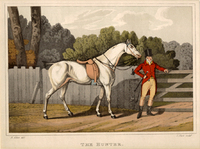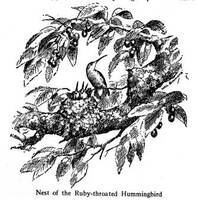- England
- Scotland
- France
- Holland
- Germany
- Italy
- Spain
- Portugal
- USA
- China
- Japan
- India
- Iran
- Advice
- Gardens
- England
- Scotland
- France
- Holland
- Germany
- Italy
- Spain
- Portugal
- USA
- China
- Japan
- India
- Iran
- Advice
- Garden Tours
Book: Landscape Planning and Environmental Impact Design: from EIA to EID
Chapter: Chapter 1 The future of town and country planning
Planning has been 'too masculine': it has concentrated on the way of the hunter and neglected the way of the nester. Abstract thought characterises the way of the hunter and, hitherto, the way of the planner. Hunters identify a goal, formulate a plan and decide upon a course of action. In most human societies, this has been a masculine role (Betsky 1995). It requires dominance and it has led societies to privilege the way of the hunter over the way of the nester [Fig 1.1]. In this sense, planning has been too masculine and too preoccupied with a never-present future. In times of scarcity, hunting may take precedence over other activities. In times of plenty, the nester can give thought to the long term well-being of the species, while the hunter continues to sacrifice everything for a single objective. Modern planning has over-emphasised both man-the-hunter and man-the-species. Lord Kames, an important figure in the history of aesthetic philosophy, wished to 'improve' Kincardine Moss for agriculture in the 1780s. He therefore diverted a river and washed so much peat into the Firth of Forth that the estuarine shore was made brown and sticky for a decade. Standards have changed. Such a policy would now be judged unethical and illegal. There was an international outcry when the wreck of the Exon Valdez washed an oil slick onto the pristine shore of Prince Edward Sound in the 1980s. Aldo Leopold compares the advent of a land ethic to the changed relationship between the sexes: When the God-like Odysseus returned from the wars in Troy, he hanged all on one rope a dozen slave-girls of his household whom he suspected of misbehaviour during his absence. (Leopold 1970) They were his property - to be disposed of as he wished. Ethical standards now embrace relations between man and environment. To the regret of some, land can no longer be treated as a woman or a slave, to be raped and destroyed at will. The creation of a good environment requires the way of the hunter to be fused with the way of the nester: planning needs to be less dictatorial and more inspirational.

